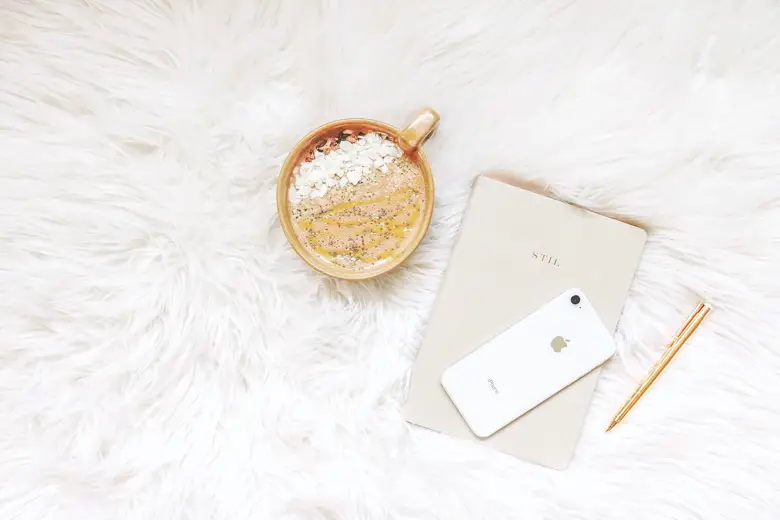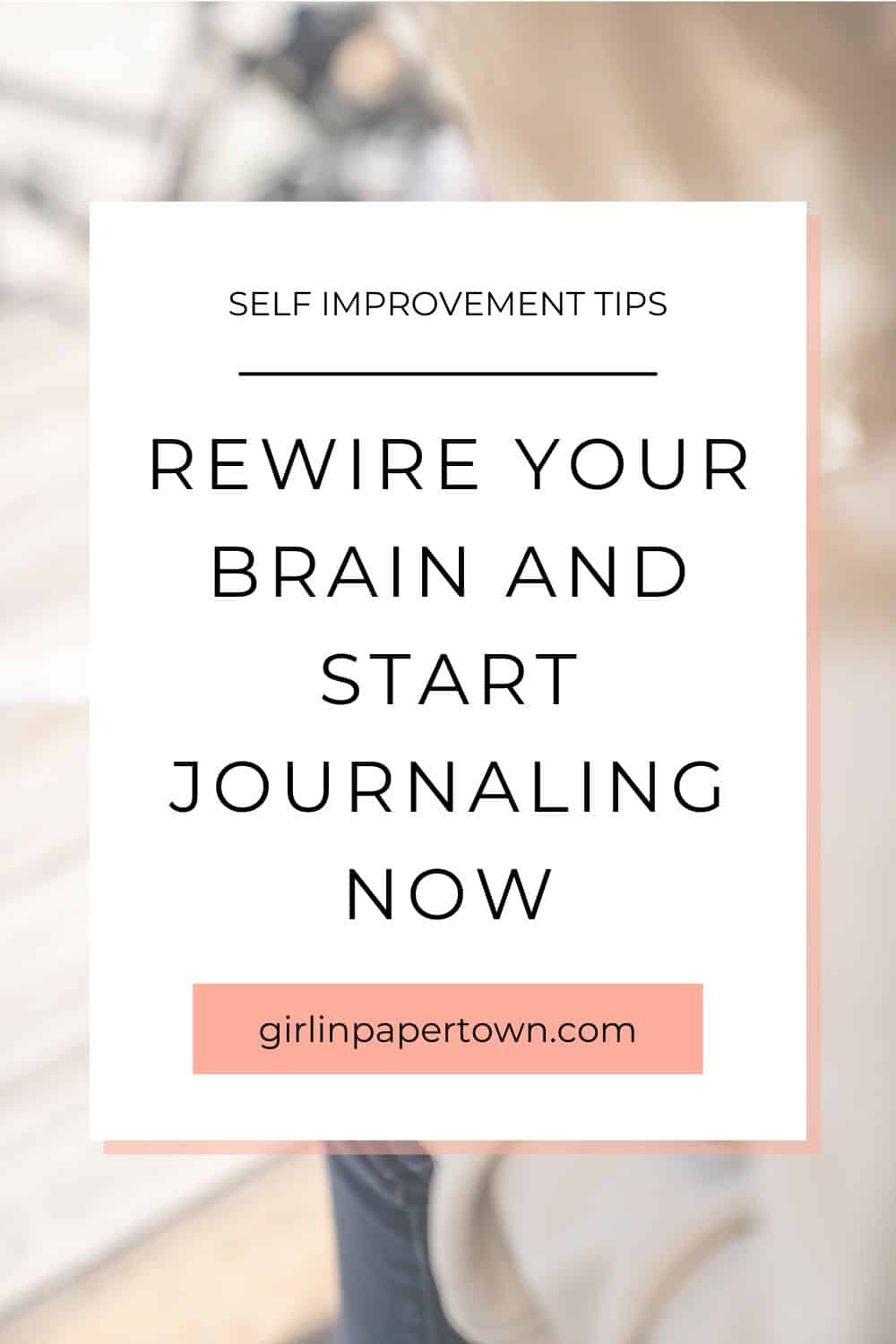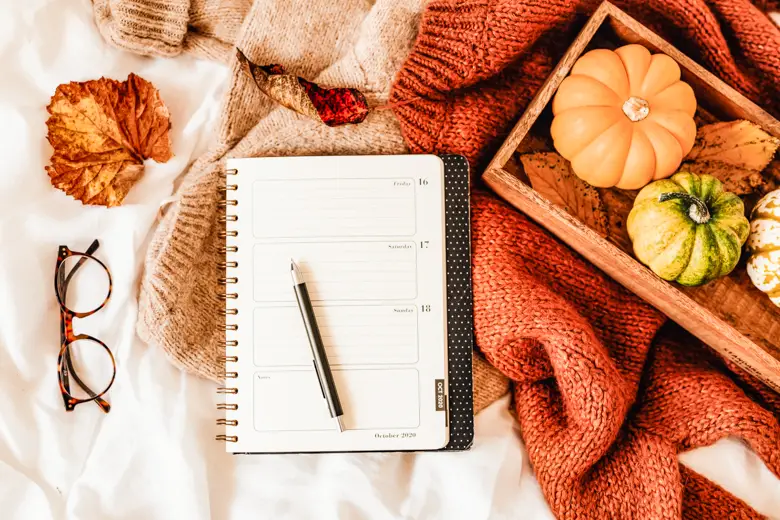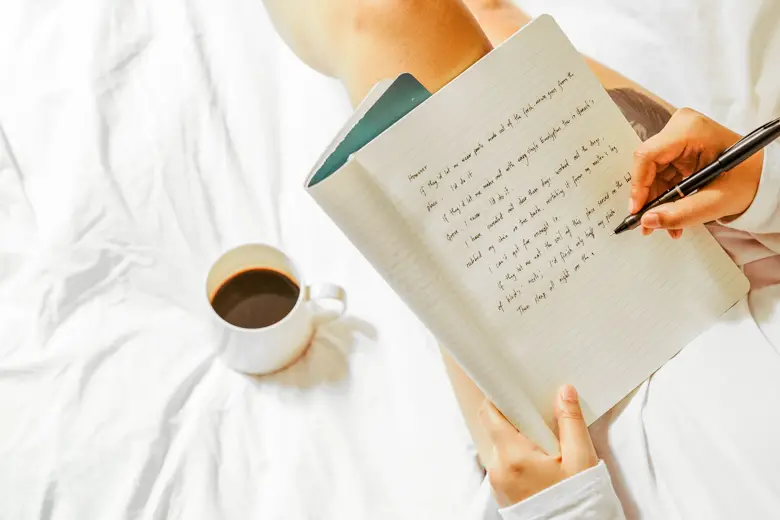4 Common Journaling Obstacles (And How To Overcome Them)
Some of the links in this post are affiliate links which means I earn a small commission if you purchase or book through my link, at no extra cost to you.

Journaling. One of those self-care activities that, no matter how many times I tried, it never really worked for me. If you’ve read my Monthly Check-In: May 2022 post, you know I used to journal for four months (!!). Twice a day. What happened then?
For a very long time, I couldn’t understand what I’m doing wrong. I’ve always wanted to keep a journal but I’ve never lasted long doing it. Earlier this year, I was really enjoying journaling until… I wasn’t. Suddenly, it became a burden. I stopped journaling for weeks to come.
A few weeks ago I came across a creative writing bootcamp where the very first exercise was to take a notebook and hand write. I didn’t expect that at all as, in my opinion, creative writing has nothing to do with handwriting. Typing on a keyboard is my go to every time I’m in a flow. I felt alienated. For the entire week, I thought I’m doing something wrong. It made me feel bad about my writing habits so I tried to force myself to pick up pen and paper and write “properly”.
No matter how hard I tried, it just didn’t work for me. I wrote two entries in my notebook, just because I had a terrible migraine and couldn’t stand looking at my iPad. Don’t get me wrong, I love the feeling of pen gliding across the paper BUT it’s so frustrating when I write slower than I think.
That’s when it suddenly hit me. It’s okay that a traditional way of journaling doesn’t work for me! Everyone is different and likes different things. So why would it be any different with journaling?
It made me wonder if there was anything else that would stand in my way of journaling.
Navigate to where you want to go:
4 common journaling obstacles
1: Feeling like you have no privacy
Fear of someone reading our journal often paralyzes us. Instead of being true to ourselves, we filter our thoughts, block internally, and we omit or change parts of the story.
In my childhood home, privacy was almost non-existent. It always scared me that one day someone will go through my stuff and find my journal. I remember receiving all those cute diaries with a lock on them as a birthday present. Keeping a diary was always my dream. I tried it a few times but never succeed because it always felt risky. I was paranoid that someone would read it the minute I left my room. Fear has stayed with me to this day.
After a few years of going back and forth with journaling, I found a few ways that work even in an environment where you might have little to no privacy. My favourite ones are:
- using password protected app;
- writing on a computer and deleting file immediately after finished journaling session;
- destroying entries written on paper.
There’s no doubt that the first one is the way I use the most often. I enjoy writing by hand in certain situations, so I often sit down with my iPad, stylus and write my thoughts in a password protected app. It gives me some sense of comfort and control because I know no one will be able to read it even if they wanted to. I’ve heard for years that writing by hand is the most beneficial way of journaling, so writing on an iPad seems like a win-win situation.
Here are some apps that you might want to use it to journal digitally.
| Handwriting? | Password protected? | ||
| Notability | iOS | ✓ | ✓ |
| GoodNotes | iOS | ✓ | ✕ |
| DayOne | iOS / Android | ✕ | ✓ |
| 5 minute journal | iOS / Android | ✕ | ✓ |
| Daylio | iOS / Android | ✕ | ✓ (in Premium version) |
I don’t like to destroy my notes, even though I never go back to them. I feel wrong doing it, mostly because I’ve spent a lot of time writing them. It’s also a kind of FOMO (fear of missing out) – it stresses me that one day I would want to read them and I will regret that I deleted them.
2: Editing as you write
When we type anything on the computer, we often go back and edit what we’ve written so far. I catch myself doing that almost every time I’m writing anything, no matter whether it’s a journal entry, blog post, or an email. It’s hard to get rid of this habit and I have a lot of problems with it. This is especially annoying when journaling, because instead of going with the flow, we focus on making the notes look perfect – we rearrange words, correct mistakes, delete sentences that make little sense.
And journaling is about writing your thoughts the way they come to you, no matter how aesthetically pleasing it looks!
The journal is yours and just for you. It’s not meant for others to read it or publish what you’ve written. Well, unless you want to, but then you can always edit it later. If you’re typing on a computer and want to work on your text editing habit, you can use Squibler. You need to choose the length of your session first, and you can’t stop writing before the time is up. Otherwise you’ll lose all your work 😉
3: Thinking that you should only hand write
I’ve heard many times that handwriting is better than typing. It helps not only with remembering things, but it also brings more benefits from journaling. It tormented me FOR YEARS and I couldn’t force myself to try another method of journaling, even though handwriting didn’t work for me.
Do you know this feeling when you’re writing something down and you’re already three thoughts behind? I feel this way every time I try to write by hand. It’s very irritating and makes journaling tiresome and completely useless. Everyone is different, so why so many people say there is only one proper way of journaling, and you shouldn’t do anything else?
If you feel that handwriting is not for you, type your next entry on the computer. Who knows, maybe it will work better for you?
A huge advantage of digital journaling is the fact that, depending on what application you use, you can access your notes wherever you are. My favorite application is Notion.
The only downside to typing is that it’s much harder to write in your journal right after you get up or just before going to bed. I rarely feel like reaching for the computer immediately after waking up. Staring at the screen before bedtime negatively affects your sleep.
RELATED ARTICLE:
⪼ 30 Easy Journaling Ideas For Beginners (+ PDF Printable Journal Prompts!)
⪼ 25 Ideas To Create The Best Self-Care Weekend Ever
⪼ What is digital planning? Learn 3 awesome reasons why you should switch from paper.
4: Mimicking others
I bet that you’ve come across journaling prompts at some point. Even I wrote about them not that long ago BUT it doesn’t mean that I use them all the time. There are three most common journaling styles:
- prompt based journaling;
- guided journaling;
- freewriting.
If you’re just starting your adventure with journaling and don’t know what works best for you, try journal prompts. Here are my favourite journaling prompts for beginners. If you decide that’s not for you, go experiment and try guided journaling or freewriting. The latter one is the one I use the most often, although instead of writing for a set amount of time or filling out a specified number of pages, I write until my mind feels empty. It’s really helpful to process your emotions or figure out some issues.
When I started journaling, I immediately started following the guided journaling approach. For four months, I journaled by answering the same prompts every day and night. After a while I felt like it’s suffocating me and I was continuing just because I didn’t want to break the “chain”. I’ve done it for so long that it felt terrible trying to omit even one day.
A few weeks later, I realized I made one huge mistake – I tried to follow someone else’s routine, but just because it works for them, it doesn’t mean that it’ll work for me too. From now on I journal whenever I want to, without pressure that I need to do it twice a day. I also mix different styles – I use journaling prompts one day, and free write another. There is no right or wrong method of journaling, so don’t be afraid of trying new things.
PIN IT FOR LATER!

4 common journaling obstacles: Conclusion
There is no one for all methods of journaling you should follow.
If you’re just starting your adventure with journaling, experiment.
If you’ve dropped it over the years, but you still want to come back to it, take a pen and paper and write whatever comes to your mind. Reflect on the reasons that made you feel you want to go back to journaling.
If you’re scared, journal on all the reasons you feel this way, and destroy what you wrote.
If you’ve been doing this for years and you feel like something is missing, experiment. You won’t lose anything, and you may find journaling somehow even more fun.
Have you ever tried journaling? What type of journaling works for your best? Let me know in the comments!




